We Embrace All Who Enjoy All Things Italian and Desire To Expand Their Knowledge of a Beautiful Country, Its People and Its Language
The Dante Alighieri Society of Washington promotes Italian language and culture. Our English and Italian programs are open to the public. We host an annual Christmas party as well as other special events throughout the year. The Society sponsors an Italian Language program with beginner to expert classes.
Who We Are
The Dante Alighieri Society (DAS) of Washington is a 501(c)(3) nonprofit corporation licensed by the State of Washington and operating in the City of Seattle. Additionally we are recognized as an official chapter of the Società Dante Alighieri, a non-profit organization (ONLUS) with chapters all over the world and headquartered in Rome, Italy.
Membership is open to anyone interested in the goals and ideals of our society regardless of ethnic origin. Many of us are native Italians or of Italian ancestry, but many of us are not. So if you love things Italian or just want to learn more about Italy, its people and its language, you are welcome.
What Do We Do
Our mission, in harmony with the principles of the Società Dante Alighieri, is to promote Italian culture and language within the state of Washington and around the world. Language, art, food, wine, friendship, fashion, elegant design and history are a large part of this culture. We gather together regularly (see schedule) to share food and enjoy presentations on the many aspects of the Italian culture. Join Us! There is much to enjoy and learn!
The major elements of our offerings are
- A language program with different learning levels, with classes held on the Seattle University campus or online. Since 1984, the local Dante chapter has offered a comprehensive Italian Language Program for all those interested in learning or perfecting their Italian language skills. Our instructors are native speakers and experienced teachers of adult learners. Learn more here.
- The Dante Alighieri Society of Washington is one of the few locations in the United States, and the only one on the West Coast, authorized to conduct the Italian Language proficiency examination (PLIDA) required by the Italian government to work or study in Italy or to obtain Italian citizenship. Learn more here.
- Dinner meetings with authentic meals prepared by members followed by a presentation conducted in the English language. Our pasta dinners are prepared by members using authentic Italian recipes and preparation techniques. Learn more here.
- Meetings in which we share antipasti and desserts and conversation (both in English and Italian) followed by a presentation conducted in the Italian language. The food for these sessions are provided by members and guests in a “potluck” fashion and include homemade Italian delights from the kitchens of native cooks. Learn more here.
Get Involved!
We’ll welcome you, and we’ll get to know each other. As an all volunteer organization (except Language School staff), Dante activities are made possible only by the time, energy, passion and love of our volunteers. Our events and gatherings create unmatched opportunities to learn more about Italy, its language and culture, and to meet other people, of Italian heritage or not, who share our common fascination with Italy. It takes a lot of volunteers to make all the Dante events happen. Member or not, you are encouraged to become actively engaged in Dante’s programs – it’s a great way to better know a great group!
Volunteer opportunities:
- Meetings:
- Help set up
- Help clean up
- Bring wine, snacks, or dessert to share
- Cook the pasta dinner (you’ll have lots of help)
- Write an article for our website about your travels to Italy
- Festa Italia Chair: Coordinate our booth at Festa
- Work a shift in the Dante booth at Festa Italiana
- Help with Festa di Natale per i Bambini
- Pre-Dante Pasta Coordinator: organize the cooking schedule
- Program Chair: Coordinate the roster of speakers
- Make a presentation at a meeting
- Chair or serve on the Board nominating committee
- Serve on the Board
- Serve as Volunteer Coordinator
To volunteer for any position or activity or if you have questions before committing, send an email to: info@danteseattle.org or call: (206) 289-0419.
How we are organized
The Dante Alighieri Society of Washington is a membership organization with an Executive Board of four officers and consiglieri. Executive Board members are elected each year at the Society’s Annual General meeting, usually held the second Wednesday in April. Members are invited to submit nominees for any office to info@danteseattle.org.
The Officers and Consiglieri for 2025 – 2026 are:
- Officers
- Alessandra Hankinson – President
- Judy Klayman – Vice-President
- Karen Stash – Secretary
- Austin Jodrey – Treasurer
- Consiglieri
- Dominico Minotti – Counselor
- Harry Reinert – Counselor
- Sean Riley – Counselor
- John Steedman – Counselor
- Ex-Officio
- Trevor Pogue – Past President
- Giuseppe Tassone – Language Program Director
Executive Board meetings are usually held on the first Wednesday of August, November, January, March and May and are open to all members. Contact us at info@danteseattle.org to find out exact time and location.
The Worldwide Dante Alighieri Society
The Società Dante Alighieri was formed in Italy in July 1889 as Ente Morale by Regio Decreto. In 2004 it became a non-profit organization (ONLUS). The society was named after Dante Alighieri (1265-1321), a pre-Renaissance poet from Florence and the author of The Divine Comedy. Dante is considered the father of the Italian language.
When in July of 1889 a manifesto was published proposing the founding of a new society, its authors – all prominent in the cultural and political life of Italy – had one united hope; to establish a society that would transcend political, national and social barriers; a society cultural in intent and purpose; a society that would reach out to Italian nationals throughout the world wherever the political and economic constraints of their homeland had forced them to emigrate and provide a thread of unity among these widely dispersed groups of people by keeping alive the knowledge of the language and love for the culture of their native country.
A more practical purpose was to give the immigrant families a basic education, since many had had little formal schooling and were virtually illiterate. The primary purpose of Dante schools abroad was to remedy this situation. The central committee in Rome and the Italian government financed the Dante schools at tremendous cost. They supplied books and teaching material, they paid teachers’ salaries, administrators’ salaries, classroom rent and so on. There were programs intended only for the children of immigrants that not only taught Italian studies but provided hot meals, day care, field trips and other benefits that these children might not get otherwise. For older children who supposedly attended local public schools, there were supplementary programs in Italian studies to keep their national roots strong. The laws that governed the financing of these schools were still active until recently, curiously enough, although they no longer applied strictly to Italian immigrants. It is under those laws that our own language program initially received some funding.
The idealistic purpose of the Società Dante Alighieri was to be admired. Equally admirable was the financial support given by the fledgling, insolvent Italian government that had only recently come into being. Unfortunately, before long some challenging difficulties arose. For one thing, while the original immigrants held strong to the ways of their native land, with the passing of only a couple of generations this strong affinity with the Italian language and culture weakened. The younger people had far stronger ties to the culture of the country in which they were born and lived and many viewed organizations such as the Dante Alighieri Society as a part of the old world that belonged to their elders and had little to do with them. So interest and participation in the Dante programs languished. Clearly something had to be done to appeal to the new generations abroad, but before this issue could be properly addressed, the events of history soon overwhelmed all other concerns.
With the advent of fascism and World War II, chapters of the Dante Alighieri Society in many parts of the world discontinued their activities due to the unfavorable political climate regarding most things Italian. The U.S. government, in fact, at one point listed the Dante Alighieri Society (along with other ethnic organizations) as ““unAmerican”; its intent declared too “nationalistic”, its educational material and presentations a suspected pipeline of fascist propaganda. Though these were mere allegations and no proof was ever brought forth to sustain them, the stigma was profound and proved to be difficult to overcome even after the war had ended. But in spite of these and other difficulties the Dante Alighieri Society, though badly crippled, managed to survive thanks largely to the perseverance of those people throughout the world who continued to believe, now more than ever after the madness of the war, in the validity of the cultural and humanistic purpose that the Dante Alighieri Society promoted. Our own Dante chapter that existed before the war was a victim of political events and was eventually reestablished in the 1960’s through the efforts of a small group of Italians and Italian Americans who supported the ideals of the Society.
In restructuring the Society in the aftermath of the war, the central committee in Rome, aided by advice from chapter representatives from abroad, recognized that times and circumstances had changed dramatically since 1889 and outmoded perspectives on the part of the parent chapter of the Society had to change accordingly if the Society was to pursue its purpose in a meaningful way. Above all, the central committee in Rome had to acknowledge that its authoritative parent role was no longer feasible due to financial problems and the very concept was not deemed desirable by the chapters abroad, who wished greater freedom in managing their own affairs.
So in October 1948, at a meeting in Venice, a major revision in the national constitution of the Society granted total autonomy to all chapters of the Dante so that each chapter could conduct its activities independently, under the direction of its own elected officers, in a manner that best suited local needs, preferences and capacities while adhering to the basic principles of the Society. This new independence proved to be a significant factor in reviving interest in the Dante because local chapters were now able to offer programs that most interested the local membership, programs that could vary from the most intellectual themes to the more basic ones of wine and food, programs that no only dealt with Italian language and culture but which also incorporated local geographic characteristics and traditions.
Another revision, also very important, was to restate, clearly and simply, the philosophy of the Society: The sole purpose of the Dante Alighieri Society is to promote the study of the Italian language and culture throughout the world…a purpose independent of political ideologies, national or ethnic origins or religious beliefs, and that the Society is the free association of people – not just Italians – but all people everywhere who are united by their love for the Italian language and culture and the spirit of universal humanism that these represent.
In July 2019 at the International Congress in Buenos Aires, the Società Dante Alighieri adopted a new statute stating that “the foreign committees are subject to the regulations dictated by their own legislation” and that in each committee’s “Constitution must be clear reference to the inspiring principles of the Società Dante Alighieri, the sharing of its aims and objectives and the need to sign the Convenzione di Affiiliazione that governs the relationship between the Società Dante Alighieri and the committees.”
Membership card – be sure to ask for your membership card if you are planning to travel to Italy. The membership card entitles you to a variety of discounts while traveling in Italy.
Our History

This historical photo documents the earliest Dante roots in Seattle. Dated November 1, 1908 it identifies the first officers of the local committee of the “Dante ‘Alighieri:” C.Marchetti, organizer, J. Corgiat, promoter, M. Pesce, treasurer, Dr. P. DeDonato, President, and A. Azzalli; secretary. Dr. DeDonato was a local physician who practiced for years in the Cobb Building and served as the first health commissioner in Georgetown. He received Presidential recognition for his anti-fascist Italian radio broadcasts during World War II. John Corgiat was a local land speculator who helped develop the Georgetown area. Interestingly, a number of Georgetown streets, like Lucille, are named after his nieces. This early photograph precedes any historical background previously known to our organization. Perhaps one of our members can fill in some more information on Dante origins in the Seattle area?
Early in Washington State’s history, Catholic parishes offered Italian language schools. Father Caramello of the Mt. Virgin Church in Seattle was a legendary teacher. The school opened in 1918 with 162 students and continued for years. The Seattle Dante Alighieri School was closed in 1943, along with all other Italian Societies, after the attack on Pearl Harbor.
The Dante Alighieri Society of Washington was restarted in 1972 when Dr. Demarco was consul in Seattle. Some of the first members were; Mr. & Mrs. Cervi; Alvau; DeVitis; DeMarco; Maffeo; Medina; Noyes; Bonica. Mrs. Caldiroli; Morrry; Bacchus; Di Julio and Mr. Pace; Harmon; Antelo; Butler; Sullivan; Lanza; Romane; Remo Borracchini; Carosi; Kolland; Klontz.The first president was Frank ‘‘Gino” Alvau followed by Pia Friedrick.
Dante Seattle has met in various locations throughout the city, including; The Main Seattle Library; Olympic Hotel; Swedish Club; Edgewater Inn; and private homes. The Headquarters House proved to be agreeable to the majority of members until it was sold in 2018. Various days of the week were tried, with Wednesday being settled on as the day with fewer conflicts with other organizations. Over the years, Dante Seattle has held a variety of events for its members and the public. These have included: Carnevale; Festa di Primavera; Festa di Natale per i bambini; dance, singing and theater groups; a history discussion group; a conversation group; and a regional cooking group.
Italian language classes resumed in Seattle in the 1970s in sporadic locations. In 1984 Dr. Paola Martini under the auspices of the the Dante Alighieri Society of Washington established a program with different levels of Italian open to the entire community and secured Seattle University for its location. In 1997 Dr. Martini retired and passed the coordination of the program to our current director Giuseppe Tassone. Professor Tassone has refined and expanded the program over the years to meet the requirements of the Common European Framework of Reference for Languages (CEFR) and introduced the PLIDA (Progetto Lingua Italiana Dante Alighieri) certification exam. The Dante Alighieri Society of Washington is one of the few locations in the United States, and the only one on the West Coast, authorized to conduct the PLIDA examination. Learn more here.
Sign up for our email list
Receive announcements of Dante Society events and activities.





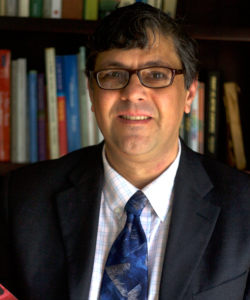
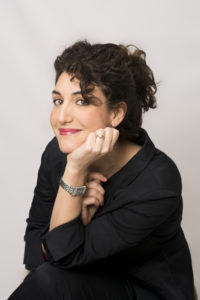
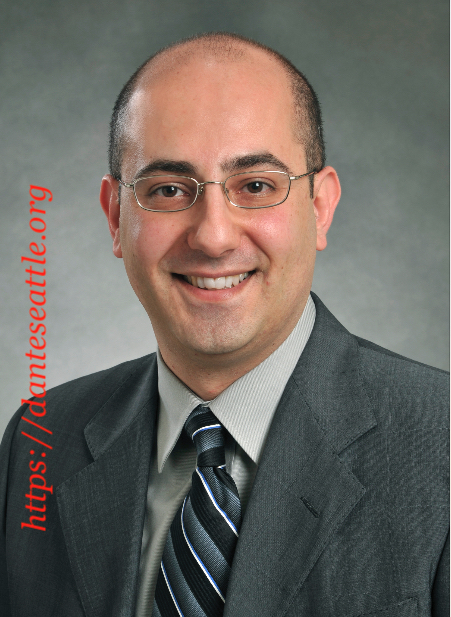
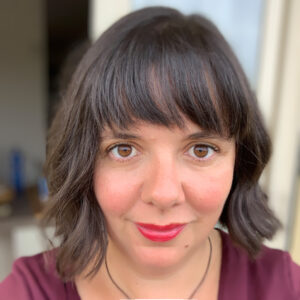 Gabriella Vagnoli was born in Pisa, Tuscany, home of the famous Leaning Tower. She grew up in a multicultural family thanks to her Brazilian mom and remembers teaching Italian for the first time as a child to her Brazilian cousins. She obtained a Laurea in English and Spanish Language and Literature at the Università degli Studi di Pisa and during her college years spent a year in the University of Reading, UK, studying mainly the works of Shakespeare. After obtaining a Certificate as a Teacher of Italian (DITALS II) at the Università per Stranieri di Siena, she has taught in a full immersion school in Florence, a children's full immersion program in Chicago and a Community College in Illinois.
Gabriella Vagnoli was born in Pisa, Tuscany, home of the famous Leaning Tower. She grew up in a multicultural family thanks to her Brazilian mom and remembers teaching Italian for the first time as a child to her Brazilian cousins. She obtained a Laurea in English and Spanish Language and Literature at the Università degli Studi di Pisa and during her college years spent a year in the University of Reading, UK, studying mainly the works of Shakespeare. After obtaining a Certificate as a Teacher of Italian (DITALS II) at the Università per Stranieri di Siena, she has taught in a full immersion school in Florence, a children's full immersion program in Chicago and a Community College in Illinois.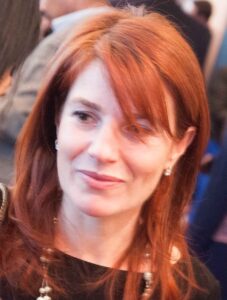 Tiziana was born and raised in Sardinia, a beautiful Italian island in the Mediterranean Sea. She has always been passionate about foreign languages and cultures, and studied French and German at the Scuola Superiore Interpreti e Traduttori in Milan, where she obtained her first Foreign Languages and Interpreter BA degree. She then pursued her MA in English and German Language and Literature at IULM, one of the most prestigious universities in Milan, Italy for Language and Communication studies.
Tiziana was born and raised in Sardinia, a beautiful Italian island in the Mediterranean Sea. She has always been passionate about foreign languages and cultures, and studied French and German at the Scuola Superiore Interpreti e Traduttori in Milan, where she obtained her first Foreign Languages and Interpreter BA degree. She then pursued her MA in English and German Language and Literature at IULM, one of the most prestigious universities in Milan, Italy for Language and Communication studies.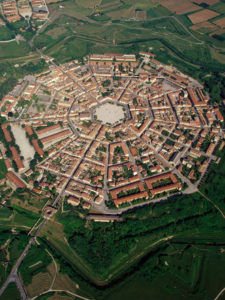
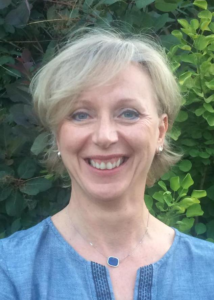
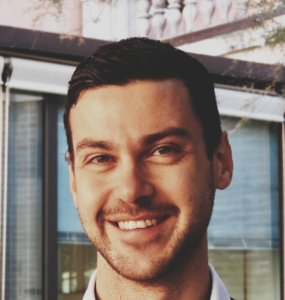
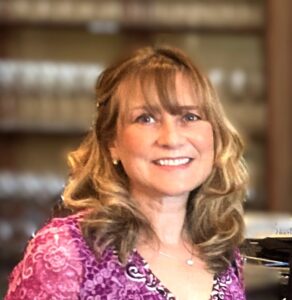 Nicla is a native of Napoli, Italy. She has a Laurea in Materie Letterarie (degree in humanities) and a Laurea in Pedagogia (degree in Education) from the Università degli Studi di Cassino. She earned her M.A in Italian and her PhD in Comparative Literature from the University of Washington. She has published articles and book chapters on gender and theater as well as politics and religion in Counter-Reformation Italy and in the last years, has been teaching Italian literature, language, and culture in different institutions. In addition to teaching in our program, Nicla is authorized to cover the role of esaminatrice and intervistatrice in our PLIDA Examination Board.
Nicla is a native of Napoli, Italy. She has a Laurea in Materie Letterarie (degree in humanities) and a Laurea in Pedagogia (degree in Education) from the Università degli Studi di Cassino. She earned her M.A in Italian and her PhD in Comparative Literature from the University of Washington. She has published articles and book chapters on gender and theater as well as politics and religion in Counter-Reformation Italy and in the last years, has been teaching Italian literature, language, and culture in different institutions. In addition to teaching in our program, Nicla is authorized to cover the role of esaminatrice and intervistatrice in our PLIDA Examination Board.